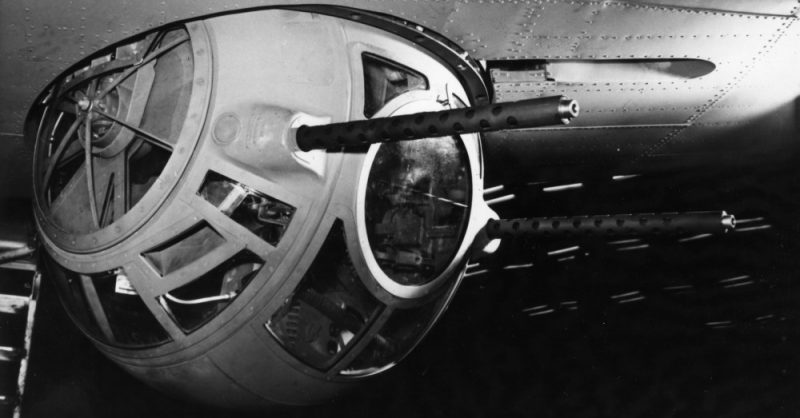Frank Mazikowski likes to keep the jokes flowing. Sometimes it is tough to tell when he’s actually being serious.
When he walked into the recruiting office and tried to re-enlist at the age of 92, he was serious. He had heard that the military was hurting for linguists. Mazikowski was a former Air Force translator, so he thought,” why not offer my skills?”
The young man at the recruiting office basically told him to go home. Offended, Mazikowski challenged the recruiting officer to a pushup challenge. The officer didn’t seem to like that.
Mazikowski’s family verified that he really did try to re-enlist. He’s a former World War II gunner that completed 62 missions in a B-24 who went on to a career in Air Force intelligence. He’s never backed away from a challenge.
Mazikowski grew up in Buffalo, New York and he now lives in Tulsa, OK. He first felt the urge to join the military when his brother joined the Marines.
Then Pearl Harbor was attacked on December 7, 1941.
He was shooting pool when there was a commotion outside. At first, he was annoyed because he had been winning the game.
Once he knew that the US had been attacked, he knew he wanted to enlist as soon as possible. The trouble was that he was only 17 and still in high school. His mother signed the permission paperwork, and Maizkowski was accepted into the Army. He transferred to the Army Air Corps with the dream of becoming a pilot.
He couldn’t pass pilot training, not when he was competing against college kids and he hadn’t even graduated from high school. He didn’t take his failure in pilot training very well.
He asked his superiors what the quickest way was to get to into combat. They told him that aerial gunners were getting knocked out of combat every 19 seconds, so Mazikowski jumped at the chance to become a gunner.
“I don’t know why,” he said, looking back on it. “I was a kid and was angry. Also, there was the adventure of it. You had a gun mounted in a window, and you’d press the button and blaze away at the enemy — 125 rounds a minute, pretty fast.”
Mazikowski worked as a ball-turret gunner. Working in the 98th Bomb Group, 15th Air Force out of Southern Italy, his group bombed targets in northern Italy and eventually in Germany.
The ball turret was located on the bottom of the plane. It was the most dangerous spot on the plane and not a place most people sought to be.
Mazikowski liked it, though. It had a 360-degree view which allowed him a great deal of flexibility to use his .50-caliber machine guns. It was also the warmest spot for a gunner in the negative temperatures at high altitudes.
Plus, he had a great view of the enemy airplanes as they took off.
Mazikowski also could see his friends in other airplanes, including the fighter pilots that escorted the bombers to protect them from enemy planes.
Mazikowski said that none were better than the Tuskegee Airmen, the ground-breaking airmen of the 332nd Fighter Group.
Mazikowski is effusive in his praise for the Tuskegee Airmen. He said that they really knew how to fly and they were very capable of shooting down the German planes. He feels that they didn’t get the respect that they deserved.
He recalls one time when a German pilot flew past his turret and waved at him. Mazikowski waited for a moment and then blasted the German out of the sky.
Another time, he saw a severed hand fly past. It was the waist gunner’s hand, removed by anti-aircraft fire. Mazikowski climbed out of his turret and rushed to help his crew mate. In the process, he got a piece of steel from the anti-aircraft fire stuck in his thigh. He pulled it out with his own hands and needed treatment when they landed. He was awarded the Purple Heart.
When the war in Europe was over, he volunteered to continue fighting in Japan. After a psychiatric evaluation to make sure he hadn’t lost his mind, he was cleared to fly in a B-29 and search for Japanese subs along the West Coast.
After the war had ended, he wanted to continue in the military. Thinking language skills would help him, he took classes to add Russian to the Polish and German he could already speak. He was assigned to the US Air Force Security Service as a translator, working in West Berlin.
He was present for the famous spy exchange depicted in the movie “Bridge of Spies” where US pilot Gary Powers was exchanged for Soviet spy Rudolf Abel, Tulsa World reported.
Mazikowski isn’t planning to enlist anymore. Though he’s convinced that his experience would be of use, he knows that wars are fought by the young.
